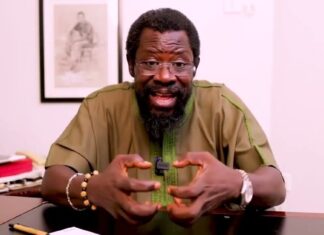By Chijioke Churuba
On October 1, 1960, Nigeria gained its political independence, and operated under three geopolitical regions of Eastern, Western and Northern Regions, while the Mid-Western Region was carved out of the Western Region in 1962.
From 1960 to 1966 and even up till 1969, the various geopolitical regions were allowed to take up to 50 per cent of the revenues derived from their regions, while the federal government took 20 per cent and the remaining 30 per cent was in left in the pool.
So, in the 1960s, the regions enjoyed reasonable fiscal and regional autonomies and witnessed appreciable levels of economic advancement. For instance, the Eastern Region, through an uncommon economic statecraft, became the fastest growing economy in the world. It grew faster than China and the Asian Tigers and invested over 40 per cent of its revenues in education.
Similarly, the Western Region, through a competent, focused and reformed-minded leadership, radically revolutionized its educational sector and opened up its knowledge space, which brilliantly and uniquely produced some of its best intellectual and human capital stock.
Also, the Northern Region opened up its agricultural capabilities and produced groundnuts, cotton, tin and other quality products such as leather – which were exported to many parts of the World.
But, by 1966-1967, following the two military coups of 1966, and the subsequent civil war that followed from 1967-1970, the regional arrangement and autonomies were dismantled and dislocated in favour of states – with diminished economic and political capabilities.
Since then, revenue and power collection have progressively and exclusively been left in the hands of the Federal Government at the centre, thereby causing lower levels of government to be significantly dependent on the Federal Government for economic revenues and survival.
Also, the abilities of the federating states to control and manage key items such as interstate roads, interstate commerce and mining rights over natural gas/petroleum resources/oil fields/ geological surveys and even the setting of educational standards/curricula etc. were exclusively assigned to the Federal Government.
Thus, overburdening the federal government, with many exclusive regulatory items (about 68 items are currently under the exclusive control and management of the federal government) and on the contrary, sub- optimizing and undercutting the capacities, regulatory roles and overall public finances of other tiers of government.
However, since 1999 when a democratically elected civilian government assumed office, there have been significant clamours for the restructuring of the federating units of the country, in line with the principles of true federalism.
These agitations which later turned into militancy in the Niger Delta Region, have partially been resolved through political negotiation that culminated partly in the current revenue sharing allocation formula of 13 per cent derivation (for the Oil Producing States since 1999), 52.68 per cent, 26.72 per cent and 20.60 per cent for the Federal, States and Local Governments respectively.
But these agitations have continued, especially from the Southern and Middle Belt Regions of the Country and have been aggravated by youth unemployment, poor infrastructure, unfavourable economic conditions and horrible insecurity across the country.
In response to some of these agitations, the then government of the former President Goodluck Ebele Jonathan, summoned a national conference in 2014. The conference deliberated and made the following notable recommendations:
- That, the three tiers of government should share funds from the federation account in the order of 42.5 per cent, 35 per cent, and 22.5 per cent for the Federal, State, and Local Governments respectively.
- That the Federal Government-controlled public schools, should be controlled and managed by the State Governments.
- That, States should be allowed to have their own State Police to ensure adequate protection of lives and property across the states and local governments.
- And also recommended that the office of the presidency should be rotated between the North and the South and among the six geo-political regions of the country, to give every region a sense of belonging.
However, not one of the above key recommendations has been implemented, fuelling stronger agitations, especially from the South- East, Niger–Delta, South-West and lately even from the North Central/Middle Belt Regions.
So, Why Restructuring?
For a divided country like Nigeria, the advantages of restructuring at this moment cannot be overemphasised. A restructured Nigeria would no doubt lay the required foundation for Nigeria’s economic growth and development. It would first de-escalate the pervasive ethnic and tribal rivalries, and give all ethnic/tribal nationalities a sense of inclusion, especially if the ‘rotational presidency’ is properly implemented.
It would inspire a new sense of belongingness for all ethnic nationalities that could unleash the required ‘patriotic capital’, to properly reconstruct and rebuild the fortunes of Nigeria.
Again, a restructured Nigeria, would promote a healthy competition amongst the constituent units of the federation, as seen during the 1960s – where regions competed favourably amongst themselves. And would promote creativity, innovation, enterprise and efficiency gains for greater economic prosperity across the geopolitical regions.
Similarly, it would give the lower tiers of government, the flexibility to effectively use taxes and levies as fiscal instruments to drive economic development. For instance, a State such as Lagos, with enormous internally generated revenue potentials could creatively use concessions, waivers, etc. to attract more businesses and investments into the state – if afforded the opportunity to administer taxes, such as: VAT etc.- thereby improving its long term economic fortunes. The same is true for states such as Anambra and Kano.
Furthermore, a restructured Nigeria would make Abuja and Federal government elective positions and appointments less attractive, thereby spreading out such pressures across the geopolitical regions and promoting greater accountability at the lower tiers of government and minimizing the dysfunctionalities associated with the mindless contestations for the control of power and resources at the centre.
Why the Resistance?
But, in spite of the above glaring advantages, why is the issue of restructuring such a contentious issue in Nigeria? Why the resistance? The answers are as follows:
- There appears to be an ‘elite disunity and mistrust’ across political party lines and even within members of the same political party concerning the issue of restructuring.
- The issue of restructuring connotes different meanings and invokes different feelings to different political groups and interests. To some, it is about hope, inclusion, merit and competition. Yet, to others, it invokes fear and possible loss of privileges.
Also, to some, restructuring means mere devolution of fiscal/ spending powers (on specific items) to the lower tiers of government.
While, to others it means more: A greater fiscal autonomy, in addition to the complete devolution of powers in critical areas such as security – (in the form of state and community police), control and management of interstate roads, interstate commerce, water resources, setting of educational standards/curricula and control and management of resources such as natural gas, petroleum and natural resources, oil fields, geological surveys at the state/regional levels and even the setting of minimum wages on a state by state basis amongst other far-reaching reforms.
Also, to some other political interests/groups, restructuring connotes the complete dismantling of the union into smaller independent nations, with loose economic, political and social cooperation amongst the nations that constituted the dismantled union etc.
In Search of Solutions
So, in the midst of some of the above mentioned discordant viewpoints on restructuring, it is reasonable to first ensure that all dominant viewpoints are well understood and the differences in viewpoints acceptably harmonised and agreed upon by the majority of the people.
Second, it is pertinent to identify and generally agree on the best and workable political process or pathway that would be initiated to drive the restructuring agenda.
Third, it is important to identify all the sacrifices/down payment costs, compromises, incentives, political and economic gains available to all the dominant political and economic interests so as to drive the restructuring agenda.
Fourth, it is critical to know that the exercise would require deft political negotiations and assurances, probably using the legacy experiences of the pre-independence constitutional conferences and the federal/regional arrangement of the 1960s as practical guidelines to reassure many that restructuring is in the long term political and economic sustainability of the country.
Furthermore, the recommendations of the various expert and technical committees on fiscal federalism/resource control and even the 2014 national conference should provide the necessary guides for the restructuring agenda.
Again, it would require the collective buy-in/genuine commitment of the country’s key political and economic actors such as the foremost socio-cultural groups, political parties, respectable senior Nigerian citizens, advocacy groups, the media, political influencers, key local and foreign companies/interests (with enormous economic, political and informational power), first class traditional rulers, faith-based organizations, labour unions, youth and separatist movements, etc. to achieve a generally acceptable restructured Nigeria.
It is time to begin the process.















